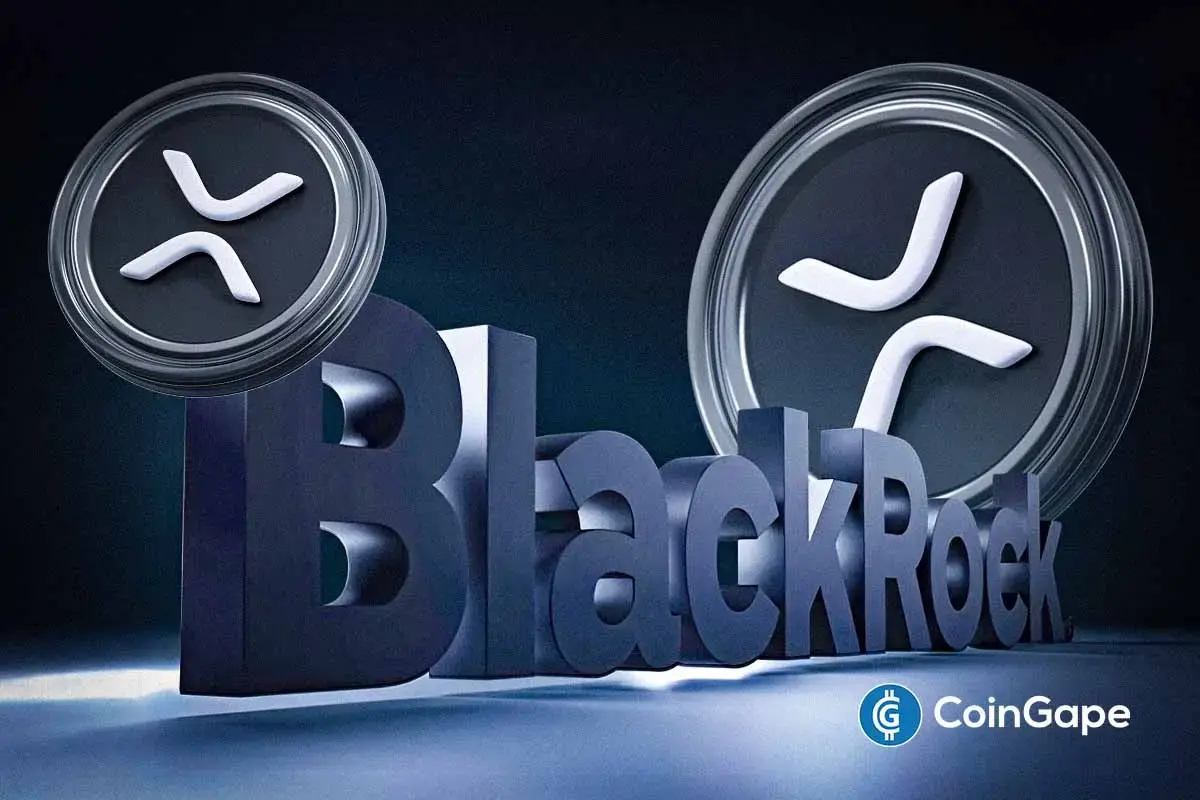Altcoin
DWF Labs Commits $12 Million To Floki Tokens, What’s The Catch?

In a bold move set to make waves in the cryptocurrency world, DWF Labs has announced a significant investment of $12 million into Floki tokens. This commitment is poised to bolster the Floki ecosystem, signaling strong confidence in its potential. However, as with any major investment in the volatile crypto market, there’s more beneath the surface. What’s driving this substantial backing, and what should stakeholders expect? Let’s delve into the details and uncover what’s behind this headline-grabbing decision.
Strategic Commitments and Upcoming Developments
As a testament to its unwavering support for the Floki Ecosystem, DWF Labs is making a substantial commitment to purchase $12 million in FLOKI tokens. A portion of the tokens will be acquired from the market, and the rest will come from the Floki treasury. This follows a previous commitment to purchase $10 million worth of FLOKI tokens a few months ago. This strategic purchase aims to further strengthen Floki’s position in the industry, especially as Floki prepares for one of its most pivotal years ever.
Several key products are on the horizon for Floki, including the mainnet release of its flagship utility product, the Valhalla metaverse game, later this year. Additionally, Floki is set to launch several key utility products, such as the Floki Trading Bot and the .Floki Decentralized Domain Name and Website Service. These developments are part of Floki’s broader strategy to become the world’s most known and most used cryptocurrency. The partnership between DWF Labs and Floki, which began in May 2023, has already contributed significantly to Floki’s adoption through facilitating key exchange listings, partnerships, and public support.
Also Read: Deutsche Bank Deepens Crypto Push, Partners Bitpanda for Payments
Market Performance and Future Prospects
As of today, the price of FLOKI (FLOKI) stands at $0.0002634 with a 24-hour trading volume of $529,775,796.96. This represents a -6.73% price decline in the last 24 hours and a -3.27% decline over the past week. With a circulating supply of 9.7 trillion FLOKI, the token is valued at a market cap of $2.5 billion. Despite a recent drop in trading volume, which fell by 29.02% over the past 24 hours to $694.04, FLOKI remains relatively liquid in the market with a volume-to-market cap ratio of 29.26%. The open interest of FLOKI is -18.81% with a current valuation of $16.4 Million.


FLOKI is currently 28.18% below its previous all-time high of $0.0003437, achieved on November 4, 2021. Despite these fluctuations, FLOKI continues to be a significant player in the cryptocurrency market. Recently, Floki Inu revealed plans for a closed beta mainnet launch of its trading bot on Ethereum, Coinbase’s Base, and Binance’s BNB mainnets. The beta will include only 150 users over two weeks, who will need to submit feedback, execute trades, and complete a survey to be eligible for rewards. This beta aims to identify bugs and gather user input to enhance the trading experience, with FLOKI as the utility token.
Analysts predict a potential price increase for FLOKI, potentially reaching $0.00054673. The project plans to burn half of the fees generated by the bot, aligning with the meme cryptocurrency’s goals and potentially driving up the token’s value.
Also Read: Pepe Coin Whale Dumps 366B PEPE, Price To Dip Ahead?
The presented content may include the personal opinion of the author and is subject to market condition. Do your market research before investing in cryptocurrencies. The author or the publication does not hold any responsibility for your personal financial loss.
Altcoin
Expert Reveals Why BlackRock Hasn’t Pushed for an XRP ETF

With Ripple’s XRP lawsuit settlement finally in place, the crypto community is abuzz with anticipation over a possible XRP ETF launch. Despite the growing frenzy over XRP exchange-traded funds, the world’s largest asset management company, BlackRock, remains silent, sparking significant attention.
Detailing BlackRock’s vision and possible reasons behind its silence, expert All Things XRP shared a series of X posts. Let’s explore the expert’s threads, reading through the key points that shed light on BlackRock’s strategic approach to crypto investments.
Why Is BlackRock Silent on XRP ETF?
In a series of X posts, expert All Things XRP shed light on BlackRock’s strategic moves that steer them away from an XRP ETF. According to the expert, BlackRock’s hesitation to launch an XRP exchange-traded fund is driven by many factors regulatory concerns, market dynamics, and strategic considerations.
BlackRock Focuses on Bitcoin and Ethereum
Notably, the asset manager’s focus on Bitcoin and Ethereum ETFs is one of the main reasons to shy away from XRP. BlackRock is currently riding the wave of success with Bitcoin and Ethereum.
Reportedly, iShares Bitcoin Trust boasts over $30 billion in Assets Under Management (AUM). In addition, BlackRock’s ETH ETF has reached $1 billion in AUM in just two months. In light of this success, the platform is cautious about exploring other altcoins to mitigate potential risks.
Moreover, XRP may not meet BlackRock’s internal thresholds for demand, liquidity, and legal clarity. According to the company’s ETF executives, only Bitcoin and Ethereum currently meet these requirements.
Regulatory Concerns
As noted by the expert, regulatory concerns play a major role in BlackRock’s hesitation to back Ripple. Although both Ripple and the SEC dropped their appeals in the XRP lawsuit, the case is not officially over, with the label of “security” still lingering around. This uncertainty may deter the investment giant from applying for an XRP ETF.
Recently, All Things XRP shared insights on CEO Brad Garlinghouse’s crucial role in Ripple’s growth.
BlackRock’s Strategic Wait-and-See Approach
Interestingly, BlackRock is adopting a cautious approach, waiting for competitors like Grayscale and Franklin Templeton to launch their XRP ETFs. While these platforms will face the possible regulatory hurdles first, it will pave the way for BlackRock’s easy entry into the ETF space. This approach will also allow BlackRock to gauge institutional appetite for XRP products and assess the risk landscape.
Whoever takes the lead, an XRP ETF launch is poised for a significant price surge in the Ripple coin.
In addition, the asset manager’s fake XRP ETF filing in 2023 has further strengthened their cautious stance. Previously, the filing went viral and sparked ambiguity within the crypto market. The investment firm had to publicly deny involvement, potentially damaging their reputation. This incident might have made them cautious about pursuing an XRP ETF, at least for now, as they may want to avoid similar PR issues.
Will BlackRock Launch an XRP ETF?
Additional factors like lack of demand and XRP’s relatively small market share have also contributed to the asset manager’s decision. However, BlackRock is expected to push for an XRP ETF in the future after tackling all the possible hurdles.
BlackRock is known for launching products at the right moment, when the odds are in their favor. The strategic move is expected when XRP meets complete regulatory clarity and market stability. As per All Things XRP, BlackRock is envisioning dominating the market. The expert cited, “But if and when they do, it’ll be to dominate the space — not just participate.”
Disclaimer: The presented content may include the personal opinion of the author and is subject to market condition. Do your market research before investing in cryptocurrencies. The author or the publication does not hold any responsibility for your personal financial loss.
Altcoin
Expert Says Solana Price To $2,000 Is Within Reach, Here’s How

While investors are scanning the horizon for a short-term Solana (SOL) rally, cryptocurrency expert CryptoCurb is predicting an ultra-bullish price movement. CryptoCurb argues that a Solana price of $2,000 is “absolutely realistic” given the current fundamentals and on-chain indicators.
Solana Price To $2,000 Is A Realistic Projection
Pseudonymous cryptocurrency analyst CryptoCurb is predicting a massive growth spurt for Solana in the near future. In an X post, the expert says the Solana price can achieve a valuation of $2,000 given its impressive network metrics.
He hinges his projection on several factors, including Ethereum’s previous price performance. Ethereum price spiked to a $600 billion market capitalization during the last cycle with its steep fees and scalability issues.
A $2K SOL price will translate to a $1 trillion market capitalization that will see it flip Ethereum as the largest altcoin. CryptoCurb notes that if Ethereum can post impressive figures during the last cycle, Solana has the capabilities to be valued at $2,000.
“2K is absolutely realistic if Solana keeps its global adoption pace with minimal disruptions and continues to scale,” said CryptoCurb.
Rising network inflows are expected to send the Solana price on a short-term rally to $150 before a big push to $2K. Currently, the Solana price is pegged at $140 with a market capitalization of $72.6 billion, making CryptoCurb’s prediction an uphill climb.
A Wave Of Impressive Metrics Around SOL
While CryptoCurb did not disclose an exact timeline for his $2,000 prediction, he points to a short-term seismic price increase. The expert his backing his predictions with a swathe of network metrics pointing to fresh bullishness.
Solana has the highest number of active addresses over the last seven days at 28.4 million. The network led the pack for transactions at 369 million, trouncing Tron, BNB Chain, Base, and Bitcoin.
Solana is finding application in several Web 3 verticals given its speed, low cost, and scalability. In the last week, the Solana price has risen by nearly 7% while 24-hour trade volume has risen by 36%.
Last week, Canada launched the first SOL ETF with prices projected to surpass $250, reversing a forming death cross. Solana open interest crossed 5.5 billion, climbing by 10% amid rising whale activity in the ecosystem.
Rising bullish metrics for the network suggest that SOL will reach $200 before ETH reclaims $3,000.
Disclaimer: The presented content may include the personal opinion of the author and is subject to market condition. Do your market research before investing in cryptocurrencies. The author or the publication does not hold any responsibility for your personal financial loss.
Altcoin
Expert Predicts Pi Network To Reach $5 As Whales Move 41M Pi Coins Off Exchanges

Crypto expert PiMigrate recently predicted that the Pi Network price could reach a new all-time high (ATH) of $5. This comes amid recent whale movements, with these investors moving 41 million Pi Coins off exchanges.
Expert Predicts Pi Network To Reach $5
In an X post, PiMigrate stated that Pi Network’s journey to $5 has just begun. He remarked that the altcoin has very strong support at $0.6. As such, the expert believes that this $5 price target is a “very possible valuation.” PiMigrate added that good utilities will push the altcoin to this target.
Another expert, Moon Jeff, also predicted that the Pi Coin price can reach this $5 target. In an X post, the expert concluded that the altcoin can reach this price target following his analysis.


He alluded to his accompanying chart, which he described as being bullish, indicating that the Pi Network price can indeed reach this $5 target. The chart also showed that the altcoin has formed a strong support level at its current price.
Crypto analyst Xia also recently claimed that the Pi Coin’s momentum is building fast after it surged past the $0.63 mark with strong volume. She also noted that the RSI and MACD are turning bullish for the altcoin.
This bullish outlook for the Pi Coin comes amid recent huge whale accumulation. A Pi community page revealed that these investors moved a whopping 41 million coins (around $27 million) off exchanges in 48 hours. Specifically, these whales moved over 13 million Pi Coins from OKX to several wallets. This presents a bullish outlook for the coin since exchange supply is declining.
Pi Needs To Reclaim This Symmetrical Triangle
While analyzing the Pi Network’s price on the higher timeframe, analyst Alpha Crypto stated that the altcoin needs to reclaim its symmetrical triangle to resume its upward move.


The analyst remarked that once Pi reclaims this structure, market participants can look for a potential long setup. He added that on the flipside, if the price falls outside the triangle, it could open up a short opportunity. Alpha Crypto urged traders to wait for confirmation rather than rushing.
From a fundamentals perspective, top exchange listings could send the Pi Coin price higher. CoinGape recently reported that top exchange HTX had fueled listing speculations with a cryptic post on its X platform. Meanwhile, Pi community members remain hopeful that Binance will soon list the altcoin.
These community members will have their eyes on the Consensus 2025 conference, where Pi Network founder Nicolas Kokkalis will allegedly join an exclusive list of industry players to speak at the event.
Expert Dr. Altcoin described the event as a pivotal moment for Pi Network, as it will provide an opportunity for the Pi team to promote the network’s ecosystem.
At the time of writing, the Pi Coin price is trading at around $0.63, down almost 3% in the last 24 hours. Trading volume is also down over 36%, with $96.34 million traded during this period.
Disclaimer: The presented content may include the personal opinion of the author and is subject to market condition. Do your market research before investing in cryptocurrencies. The author or the publication does not hold any responsibility for your personal financial loss.
-

 Market19 hours ago
Market19 hours ago1 Year After Bitcoin Halving: What’s Different This Time?
-

 Market20 hours ago
Market20 hours agoVOXEL Climbs 200% After Suspected Bitget Bot Glitch
-

 Market23 hours ago
Market23 hours agoMELANIA Crashes to All-Time Low Amid Insiders Continued Sales
-

 Market18 hours ago
Market18 hours agoTokens Big Players Are Buying
-

 Market24 hours ago
Market24 hours agoCharles Schwab Plans Spot Crypto Trading Rollout in 2026
-

 Market17 hours ago
Market17 hours agoDogecoin Defies Bullish Bets During Dogeday Celebration
-

 Market15 hours ago
Market15 hours agoWill XRP Break Support and Drop Below $2?
-

 Altcoin22 hours ago
Altcoin22 hours agoXRP Leads Crypto Shopping List For Latin America Ahead Of ETH, SOL—Report

















✓ Share: